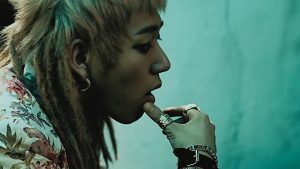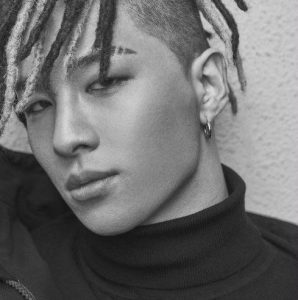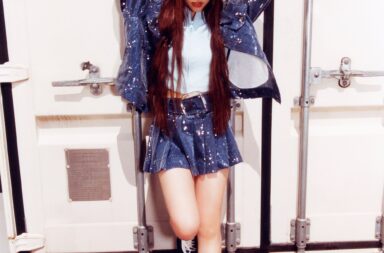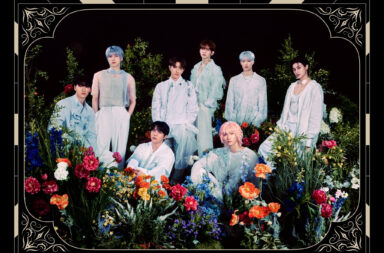
The story of George Floyd‘s death is hardly an unheard one at this point. On May 25, 2020, he was arrested after a store clerk called cops for a supposedly counterfeit $20 bill. A viral video of his unfortunate death at the hands of police sparked a series of protests calling for justice. Black Lives Matter (BLM), an organization founded in 2013 after the Trayvon Martin case, has consistently been seen as a provocative phrase rather than a radical movement towards dismantling systemic racism by holding the very institutions that uphold racist policies accountable for the irrevocable damage they’ve done to Black people. Although a few weeks have passed, the movement is still going strong, but not without debates over who and why anyone should support it.
K-pop has frequently come under fire for its blatant appropriation of Black culture, yet there have been numerous times those critiques have fallen short of any progressive discussion. The controversies are polished with a veneer of “cultural appreciation” that suggests Black people benefited more from having their culture repackaged through Asian representations than it would without it. Many times, Black fans feel at odds with enjoying something different from their own culture, while struggling with how specific elements of Black culture are appropriated for profit. It’s a battle to explain over and over why wearing locs and braids is harmful in that it perpetuates the idea that Blackness is a type of concept rather than a link to Black ancestral roots.
It doesn’t help that these conversations are further stalled by fans defending idols, pleading their ignorance as Koreans as the reason for instances of Blackface and saying the n-word. Sadly, these incidents are not isolated to any particular fandoms, and probably every Black K-pop fan has at least one story of dealing with racism from other non-Black fans. In the worst of cases, Black fans opt to leave completely, which doesn’t leave a lot of room for further discourse on these issues.
Now that another Black person’s demise has prompted a discussion on racism and the deadly cost of a Black birthright, how are K-pop idols confronting the glaring reality of their privilege, in the face of Black fans who feel personally affected by this moment?
It needs to be established that BLM never went away, but numerous attempts to provoke lasting change towards equality have fizzled out after a few days of civil unrest. It’s not a coincidence how that also reflects what happens when anti-Blackness rears its ugly head in K-pop. The main reason Black fans feel outnumbered in speaking out about these issues is because we often don’t get support for wanting to hold idols accountable. We are told it’s damaging to their image to bring up a wrong they have committed rather than to “educate” them. But what is education if the wrong is never acknowledged or swept under the rug?
It’s also difficult to accept the ignorance argument when words like “swag” and “lit” have permeated song lyrics along with dance trends originated by Black people. To deride “Koreaboos,” or fans who fetishize Koreans and Korean culture, but then not see how it’s equally damaging to fetishize Black culture is quite perplexing. Regardless of whose culture it is, it’s simply not okay to fetishize people under the false term of “appreciation” when it results in people being dehumanized for entertainment. While K-pop isn’t fully at fault for the causality of anti-Blackness, we can’t overlook the role of non-Black idols and fans in perpetuating that harm with their actions.
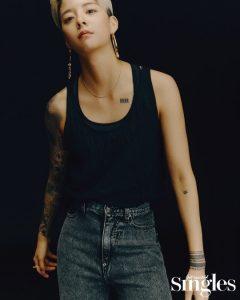
Granted, there have been attempts made at addressing these issues in the past, but it’s usually perceived as being at the behest of “angry” Black fans, and not as a lesson in moral culpability. When Amber Liu was called out for her remarks on a controversial video, she apologized, but the reaction from her defenders mirrored the racial tensions that Black people often receive for even trying to explain what was wrong in the first place. It didn’t help that her apology echoed the “ignorant” defense as she admitted to coming to a snap judgment without understanding systemic racism in the United States. It’s unsurprising that she continued receiving backlash while trying to support BLM recently, because there was an entire conversation that went unaddressed with one apologetic note. “She apologized, now let it go.” By consistently refusing to delve into these topics deeper as they happen, no change can occur in attitudes as long as the template idol apology remains as the standard acceptance of a lesson learned. Addressing anti-Blackness requires more than a screenshot apology.
That brings us to the recent events surrounding Black Lives Matter. Maybe it’s the culmination of the events of 2020, or perhaps it’s centuries of racial injustices being brought more to light with the help of social media, but something about Floyd’s death ran a fire throughout the world. Artists like Tiger JK and Eric Nam took to social media to express their frustration and empathy and share links of info on how to help BLM. Jae of Day6, Jay Park, and Got7‘s Mark made generous donations as well, and soon would be joined by H1gher Music‘s artists, who posed with BLM signs.
Crush, CL, and Jessi not only called for action, but also reminded those in the music industry that Black artists laid down the groundwork for many musicians and made laws like the Immigration Act of 1965 possible through their tenacious efforts. The calling out of the K-pop industry needed to happen in particular: there has always been a need to address the hypocritical nature of an industry that promotes music and art based off of Black culture while shunning the very people who inspired their creativity. You can’t have your K-pop and dislike Black people too.
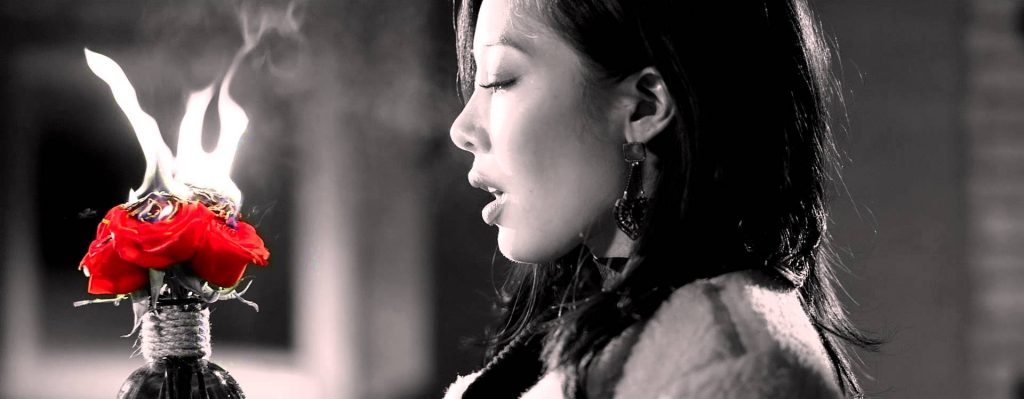
Out of the many artists who showed support, there were some who took a considerable risk in posting, as was the case with Red Velvet‘s Yeri and Secret Number‘s Denise. Yeri received some negative feedback, but more people were in support of her stance. Denise didn’t fare as well–she faced a brief deactivation from social media and the removal of her original supportive post. Actions taken against idols like her became the base argument for why idols should be allowed to remain quiet on the matter. Soon, the issue went from being a question of “Who would speak up?” to “Why should they have to speak up?” Divisions of opinions ignited fan wars again, as some took the opportunity to chastise certain idols for carrying on with business as usual. Black fans expressed their frustration at both the idols and fandoms, as it became apparent that some cared more about not damaging the clean image of K-pop stars than the real lives of Black people.
That’s why the performative aspect of supporting BLM can’t be overlooked in all of this either. It’s great to get more influential voices behind the movement, but sometimes, the support can feel superficial. When #blackouttuesday trended as another way to support BLM, many criticized the move as lacking sincerity since it appeared many posts only consisted of a black square and nothing else. The purpose was to highlight Black artists by posting links to their work or posting a statement on the square, but confusion and complacency created a mess of an attempt to show solidarity. It didn’t help that a lot of idols who were previously quiet took this opportunity to make their stance in a subjectively subtle way. The “silent supporter” role is especially upsetting if one considers how easily something like the shoot dance, created by Black dancers, can last for months on full display, while saying “Black Lives Matter” becomes an almost taboo topic for the same people who openly partake in Black trends. Some fans will argue this was the only way idols could safely support the movement, but a troubling problem lies in the fact that there are any negative consequences at all for simply stating one is against racism.
It is for this reason that it’s even more important for a chorus of voices to form a united front on this matter. Black people are told constantly that “Now is not the time” when it comes to confronting the many roots of racism. Now is not the time to discuss colorism. Now is not the time for a conversation on appropriation. Now is not the time to bring up Blackface and the n-word. When would be a good time? Now feels very good, but these conversations should have happened without needing someone dying for everyone to realize how these unchecked issues go from innocuous ignorance to full blown murder over how someone is perceived because of who they are. Black voices and opinions need to matter as much as the voices of these idols because there are Black fans and Black Koreans (Han Hyun-min, Lee Michelle, Insooni) who deal with this on a daily basis. Black people live practically everywhere, so when we’re told to simply “just leave” if we’re uncomfortable with these situations, it comes off as “Go because you’re the problem, not the racists.”
That flippant attitude is why Black fans can feel isolated in fandoms, but that doesn’t mean every fan sides with it. Some even took to trending hashtags to comfort Black fans who felt attacked and ignored. As much as people abhor the prevalence of K-pop fans on social media, a lot of people praised fans banding together to flood racist hashtags with their favorite fan cams. Years of stan behavior also paid off for a common good as fans crashed entire police station apps, deterring anyone from giving information about protesters who were at risk of being arrested. Of course, this can’t erase the backlash Black fans received, but it was good to know that we had other fans in our corner with us. If this was the case every time we spoke up, fewer Black fans would feel ostracized.
Observing a lot of these interactions on social media, I found myself in a constant emotional flux as a Black K-pop fan. I wavered between feeling despondent when I saw other Black fans getting attacked along with me, and feeling touched by the flow of petitions and helpful information flooding my feed. I didn’t know how my favorite idols really felt about Black people, and when you’ve poured years of unwavering support behind someone regardless of their race and nationality, it can be upsetting to feel like that sentiment isn’t going to be reciprocated. It feels worse to think that the only thing they accept from your people is how your culture can elevate their popularity without the negative repercussions that come with the actual designation of being Black. I’m honestly not interested in a debate over emotions, because this is how I felt. Other Black people may have felt differently, and their feelings are valid too. But so are our lives. Does my life as a Black person matter enough to support my basic human rights? These shouldn’t be questions to ponder, and yet, they are for me. It became a struggle to find answers, until I looked at the overall picture of what was happening now.
There were now more K-pop idols who spoke up against injustice and gave donations. There were now more K-pop fans who stood with Black fans, signing petitions and urging others to support the movement. Even in South Korea, there were citizens who joined many other countries across the globe to march in solidarity for the human rights of Black people. Countless people united around the world to let people know #BlackLivesMatter, and it shouldn’t be a question as to why. My hope is this movement lays down more groundwork to dismantle the systems that feed racism and bigotry everywhere. But that can only happen if all Black lives matter to everyone.
(YouTube [1][2][3][4], Twitter, Instagram, Newsweek, Variety, UPI)
Cjontai is former Seoulbeats editor and writer who got into K-pop in 2012. She casually enjoys it as a light escape from her job as an essential worker. She still loves BTS and is hoping for a 2NE1 reunion.
If you’d like to guest write for Seoulbeats, check out our Work with Us page for submission guidelines.
